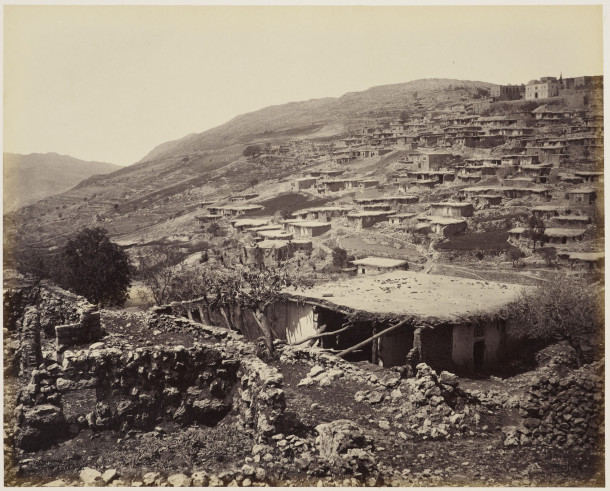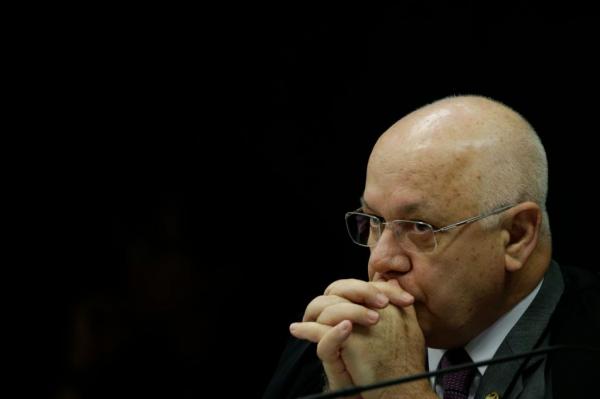Profession is thousands of years old, but motivations behind it remain basically the same
Russian President Vladimir Putin's alleged attempt to meddle in the U.S. election has raised new concerns about global espionage. But, as Brian Stewart explains, there's been a massive surge in spying for years. (Alexander Zemlianichenko/Associated Press)
The alleged Russian plot that targeted the U.S. presidential election has raised concerns we're headed for Cold War levels of spying, but there's actually plenty of evidence the world soared past that point years ago.
In a CBC News documentary that aired four years ago, intelligence experts described new global threats as almost a pandemic of espionage that seems to know no limits.
It was clear revolutionary forms of spying had emerged, the most powerful of which was the kind of cyberattack skulduggery Russia allegedly used to try to destabilize the Democrats and help Republican Donald Trump win the presidency.
Sure, Cold War espionage was baffling enough — dubbed "a wilderness of mirrors" by the British — but it was at least more focused on the big power struggle between the U.S. and Soviet Union and far more technologically limited than today's sleuthing free-for-all.
There are now an estimated 120 countries involved in espionage, each trying to infiltrate military, political and economic targets all over the world.
High-tech snooping dramatically increased espionage threats and the quantity of information governments collect. (Kirill Kudryavtsev/AFP/Getty Images)
And those are just the official spy operations. Non-state and corporate spies have become much more active, not to mention rogue cyber warriors who sell their wares as independents and major organized crime and terror groups.
I suggest there are other categories of cyber-spies. Powerful organizations such as might be operating under the UN banner, or for oligarchs like George Soros, the Koch brothers, etc., could well be entering the field of play. Remember, 2 years ago Lord Christopher Moncton overheard a British envoy to the UN Climate Change forum predict the fall of Conservative Prime Ministers from Australia and Canada. They were standing in the way of a global agreement on climate change that would cede powers to the UN to fine or punish countries for failing to meet targets in CO2 reduction. Both PMs were gone within a year. The climate change agreement was seen by Monkton as the first major step into a one-world government.
More threats, bigger budgets
Globalization naturally helps the growth of espionage by making it easier for covert operators to move around more open societies. At the same time, high-tech internet snooping ensures it's often possible to steal sensitive information without even leaving a secure base.
These growing threats naturally boost national spy agency budgets. The British MI6 foreign intelligence service is reportedly expanding by 40 per cent over four years, while U.S. spy operations already spend $70 billion a year.
More threats and more information to be analyzed has resulted in budgets hikes for spy agencies like the Central Intelligence Agency. (Reuters)
So the shadow world keeps expanding, but this brings us to the big question: why the global addiction to espionage and its many dark crafts?
Spying is known as one of the world's oldest professions and the motives behind it have remained consistent over thousands of years: fear, avarice, insatiable curiosity and a desire to undercut real or imagined opponents.
At the most basic level, spies seek to feed governments with as much information as possible on threats emanating from other powers, as well as intelligence about economic and scientific competitors, and sometimes even antagonistic political groups that might do them harm.
Information overload
It's often said 90 per cent of all useful intelligence can be had from open public sources, but that secret 10 per cent that can only be obtained through covert means is still gargantuan.
Modern espionage produces information overload. And the fact that the goal is to collect, send and analyze this deluge of data for risks and opportunities as quickly as possible means intelligence operations are only getting bigger.
And consider how competition works in spying. Governments tend to prefer analysis of secrets from several sources rather than just one, so you have the U.S. with 17 separate intelligence hubs and Russia with a half dozen.
See my next post: U.S., Russia - Long History of Election Interference.
The National Security Agency is one of 17 separate U.S. intelligence groups. (Jason Reed/Reuters)
Historical jitters have also contributed to the insatiable craving for more secrets that motivates leading espionage powers.
It's no coincidence that the U.S., Russia, China, Israel and Iran, to name just a few, all suffered sneak attacks in war that left them convinced the best defence is an espionage offence and that they can never learn too many secrets.
The U.S., for example, has been exposed for spying on allies like Germany, while Russia has alarmed several governments including Poland, Ukraine, Germany, Sweden and Norway with a surge in espionage and covert interference.
Kremlin's goals
Moscow's methods of political sabotage allegedly include hacking political parties and state agencies, creating fake news stories to stir up xenophobic passion and providing money to far-right parties.
The goal seems to be to sow discord through the Western alliance and destabilize the EU while also trying to ensure an end to sanctions against Moscow.
Putin's goals include disrupting NATO and destabilizing the EU. (Mikhail Klimentyev/AP)
Mark Galeotti, a leading authority on Russian security, says even President Vladimir Putin's most aggressive espionage efforts are primarily motivated by defence.
"Every external operation is first and foremost a domestic one," he wrote in a study for the European Council on Foreign Relations. "This means carrying out operations to prevent 'foreign interference' as the Kremlin sees it, as well as dividing strategic rivals such as the EU."
Whatever the mindset, the aggression comes at a time when international nerves are already on edge because of political turmoil in the EU, constant concern about terrorism, as well as a potentially unpredictable new era with Trump in charge of the U.S.
U.S. President Donald Trump says he'll make cyberwarfare a 'priority' in the fight against ISIS and other terrorist groups. (Carlos Barria/Reuters)
The fact it's so difficult to track and expose so many cyber threats from Russia and other sources only means we can expect even more of them.
A new term, "hybrid warfare," is increasingly used in NATO to characterize clandestine and cyberattacks that could target governments, military sites, energy infrastructure like nuclear plants, stock markets and basically entire economies.
In a very rare public warning, MI6 boss Alex Younger recently said the difficulty in dealing with so many global phantoms "should be a concern to all who share democratic values."
"Data and the internet have turned our business on its head."
Canada not immune
No country seems immune to hacking and meddling — certainly not Canada. Top security figures including former CSIS director Richard Fadden have warned that other countries have likely already tried to influence our elections.
Canadian government computers have been hacked, including those at our premier scientific research body, the National Research Council, in 2014. The Harper government described the perpetrator as "a highly sophisticated Chinese state-sponsored actor."
Former CSIS director Richard Fadden says other countries have likely already tried to influence Canadian elections. (Sean Kilpatrick/Canadian Press)
Canada, like all advanced countries, is a target of economic espionage. That's where foreign countries, trade competitors and cybercrime groups try to steal secrets from key sectors such as aerospace, biotechnology, chemicals and nuclear energy.
Adding pure greed to the mix of state insecurities makes the global scourge of spying even more difficult to combat, especially when few countries have totally clean hands.
A great many international conferences and studies over years have struggled to find ways to control espionage, especially cyberattacks. Some even argue progress will come only if perpetrators, including the U.S., China and Russia, come to fear retaliation by equally damaging attacks.
But escalating covert attacks to combat bad behaviour does have a chilling Cold War ring to it, and there's also the risk counterattacks might actually make this espionage pandemic even worse.
Brian Stewart
Canada and abroad
One of this country's most experienced journalists and foreign correspondents, Brian Stewart is currently a Distinguished Senior Fellow at the Munk School for Global Affairs at the University of Toronto. He also sits on the advisory board of Human Rights Watch Canada. In almost four decades of reporting, he has covered many of the world's conflicts and reported from 10 war zones, from El Salvador to Beirut and Afghanistan.



















